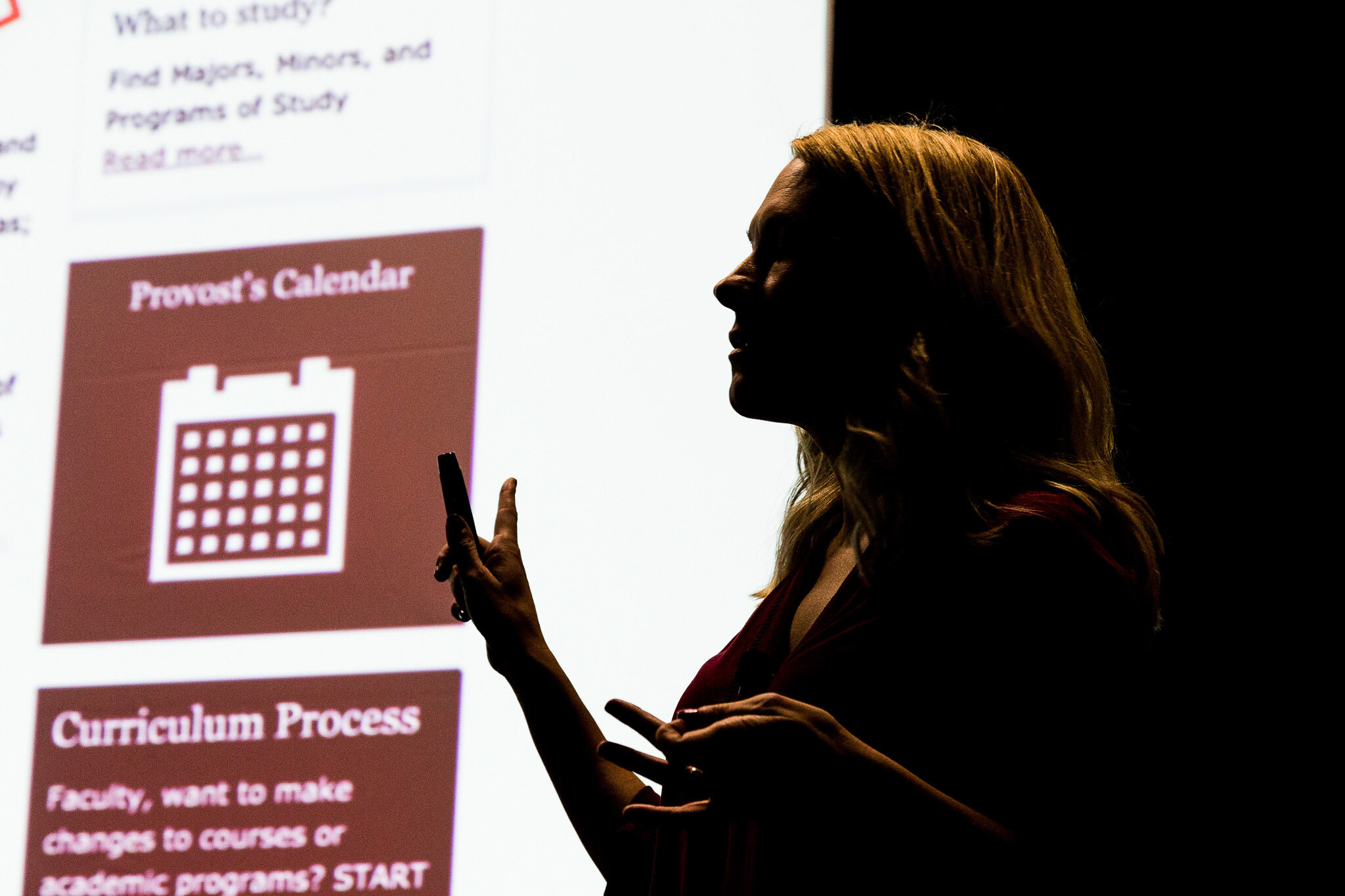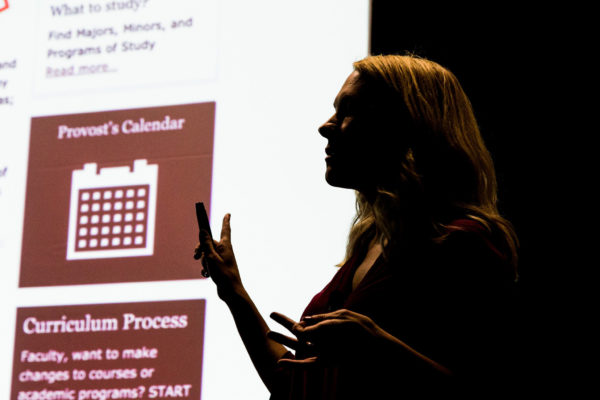
Every year, the HighEdWeb annual conference brings web and digital professionals together to share what we know. It’s one of the premier events in the professional development calendar for folks who work at colleges and universities, AND it’s one of the best communities around for year-long learning, networking and connecting with friends new and old.
And one of the best ways to participate in that community is to be a presenter. If speaking at a conference is something you’ve been thinking about for 2020, you’re in luck! The call for proposals for HighEdWeb 2020 is open, and the deadline to submit your idea is Monday, February 24.
If you’re new to conference or professional speaking, HighEdWeb is a particularly interesting and welcoming opportunity. Each year, at least one-third of our speakers are first-time presenters, and our attendee and volunteer community is one of the most supportive around. Our attendees *are* our speakers and vice versa, and we all have something to learn from *and* to teach each other.
So if you’re still pondering whether to submit a proposal, here’s three things you should know that I hope will help.
Who presents at HighEdWeb?
The folks who present at HighEdWeb work at or with colleges and universities around North America and the world. They are developers, programmers, designers, content strategists, social media managers, marketers, team leaders, multimedia producers, data and analytics specialists, librarians, instructional technologists and system administrators.
They work in many divisions and organizations, including IT and web services, marketing and communications, enrollment and admissions, academic departments, alumni relations and advancement, student services and at vendor partners.
Some are conference veterans and some are first-timers. They come from technical backgrounds and non-technical backgrounds. Some are managers or leaders, and some are just getting started on their career paths.
What makes for a great proposal?
Most importantly, pick a topic that you’re excited about. You can focus on a project that you or your team just knocked out of the park. Or a new method you developed to solve a particular pain point in your organization or for your users. What code did you write? What strategy did you implement? What was broken and how did you fix it? What new thing did you try and what happened as a result? Was it amazing? Would you do it differently next time?
We’re particularly interested in presentations that our attendees can take home and use in their day-to-day work. When you’re writing your proposal, describe the topic / project / case study / etc. that you plan to cover, but also be sure to explain what a conference attendee can expect to learn if they come to your session.
And if you’re looking for inspiration, take a look at last year’s conference program.
Why should I give this a go?
Because you know you want to!
The web needs all of us, and at the annual HighEdWeb conference you can help support our professions by sharing your knowledge. You’ll get the personal satisfaction of knowing that your presentation may have been exactly what another web pro needed to hear. You’ll get the professional satisfaction of building career development skills by presenting at one of the best and longest-running community conferences around. Plus, bonus: all presenters receive $450 off their conference registration.
And there are four different presentation formats from which to choose.
- Most HighEdWeb presentations take the form of a 45-minute presentation session.
- We also have a poster session, where you would create a poster to describe your project or idea and then speak individually with attendees as they walk through the poster room. Think science fair for grown-ups.
- There are also lightning talks. These are 10-minute sessions, faced-paced and fun and delivered one after the other to the entire conference audience, usually right after lunch.
- And we have half-day (3.5 hour) pre- and post-conference workshops. These are usually hands-on, small (capped at 25 participants) sessions that attendees register for ahead of the conference. (Workshop presenters receive a full conference registration waiver.)
Finally, it’s really easy to submit a proposal. All we ask for is a title, a short abstract describing your session, and a presenter bio.
That’s it! The link to the HighEdWeb 2020 call for proposals is at https://2020.highedweb.org/proposals/. Deadline is Monday, February 24. Hit me up with questions if you’ve got them; I’m on Twitter at @LoriPA or you can use the conference hashtag at #HEWeb20.

